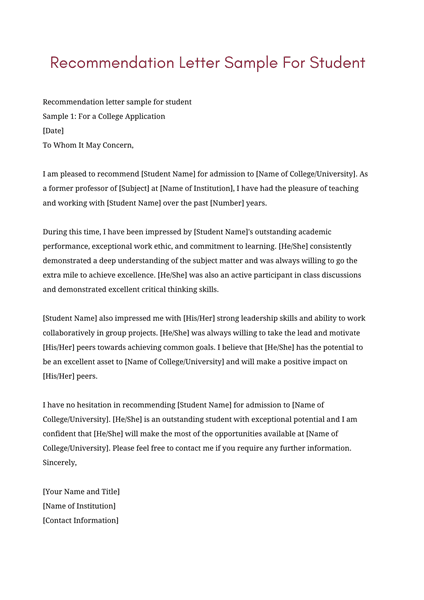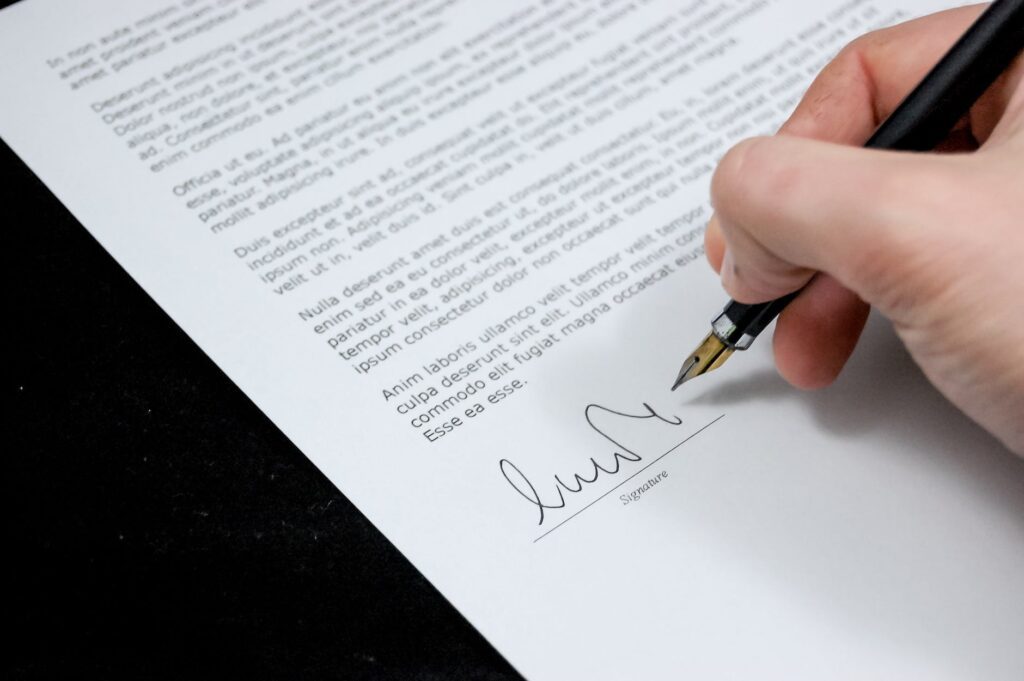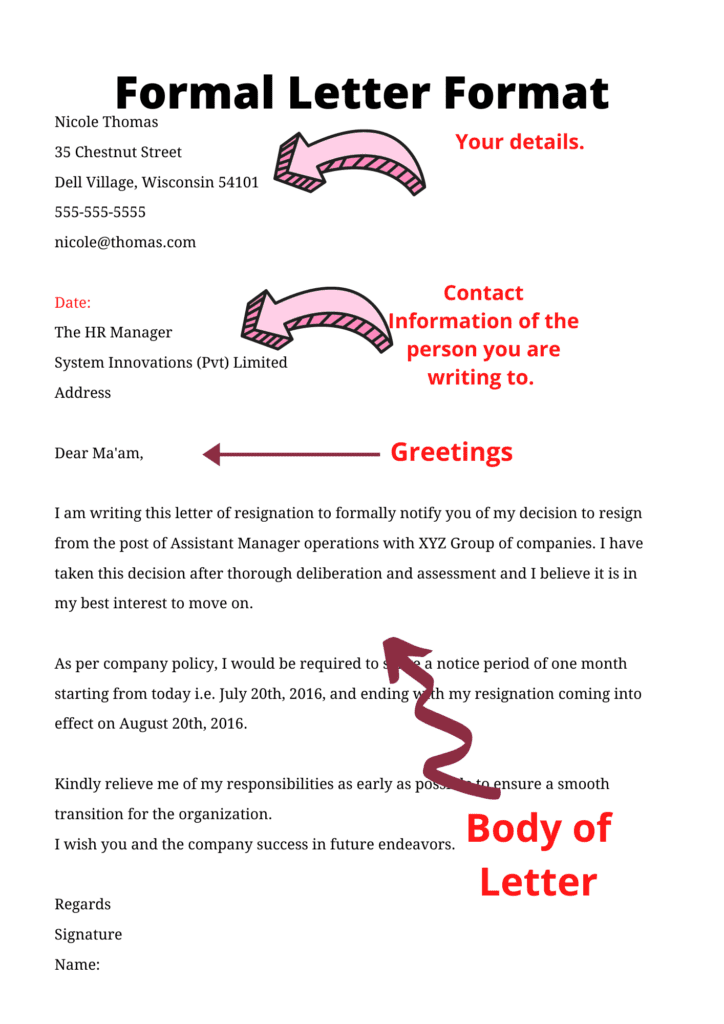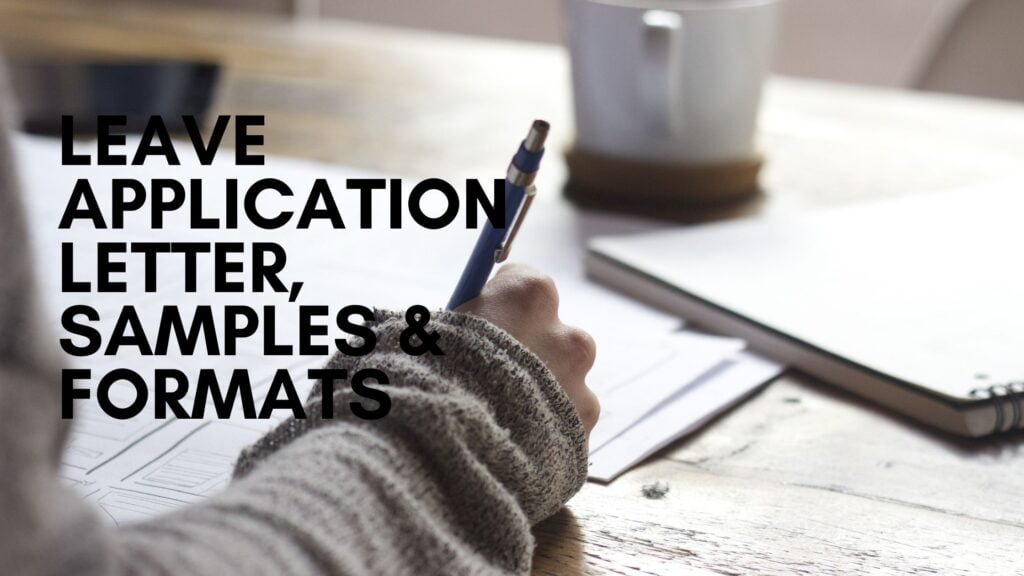A recommendation letter can play a crucial role in helping a student to gain admission into a college, graduate school, or land a job. It serves as an endorsement of the student’s character, abilities, and potential, and can help to give a more complete picture of the applicant beyond their academic transcripts and test scores. If you’ve been asked to write a recommendation letter for a student, here are some tips to help you do it effectively.
- Request Information: Before writing the recommendation letter, ask the student to provide you with a copy of their resume, transcripts, and any other relevant information. This will help you to get a sense of their achievements, interests, and career goals, and enable you to tailor your letter accordingly.
- Introduce Yourself: Start your letter by introducing yourself and explaining your relationship with the student. If you’re a teacher, describe the student’s academic performance in your class, their work ethic, and their intellectual curiosity. If you’re an employer, discuss the student’s job performance, leadership skills, and ability to work in a team.
- Highlight Strengths: In the body of the letter, focus on the student’s strengths, abilities, and achievements. Discuss their academic achievements, leadership skills, work ethic, and any other strengths that you believe are relevant. Use specific examples to illustrate your points and avoid vague generalizations.
- Be Positive: When writing a recommendation letter, it’s important to be positive and supportive. Avoid criticizing the student or mentioning any weaknesses, as this can undermine the purpose of the letter. Instead, focus on highlighting the student’s positive qualities and how they will make a valuable contribution to the institution or organization they are applying to.
- Provide Specific Examples: Use specific examples to illustrate your points and provide evidence of the student’s abilities. For example, if the student is an excellent communicator, provide examples of how they have effectively communicated ideas in a group setting. If the student is a leader, discuss specific instances where they have demonstrated leadership skills and achieved results.
- Avoid Overstatement: While it’s important to be positive, avoid overstatement and exaggeration. Stick to the facts and be honest about the student’s strengths and weaknesses. If you don’t know the student well enough to write a glowing recommendation, it’s better to decline the request rather than provide a lukewarm or insincere letter.
- Conclude with a Strong Recommendation: In the conclusion of the letter, reiterate your support for the student and provide a strong recommendation. Use phrases such as “I strongly recommend,” “I wholeheartedly endorse,” or “I have no hesitation in recommending.” Be sure to include your contact information so that the recipient can follow up if they have any questions.
In summary, writing a recommendation letter for a student can be a rewarding experience. By following these tips, you can provide a compelling endorsement of the student’s abilities and potential, and help them to achieve their goals.
Recommendation letter sample for student
Sample 1: For a College Application
[Date]
To Whom It May Concern,
I am pleased to recommend [Student Name] for admission to [Name of College/University]. As a former professor of [Subject] at [Name of Institution], I have had the pleasure of teaching and working with [Student Name] over the past [Number] years.
During this time, I have been impressed by [Student Name]’s outstanding academic performance, exceptional work ethic, and commitment to learning. [He/She] consistently demonstrated a deep understanding of the subject matter and was always willing to go the extra mile to achieve excellence. [He/She] was also an active participant in class discussions and demonstrated excellent critical thinking skills.
[Student Name] also impressed me with [His/Her] strong leadership skills and ability to work collaboratively in group projects. [He/She] was always willing to take the lead and motivate [His/Her] peers towards achieving common goals. I believe that [He/She] has the potential to be an excellent asset to [Name of College/University] and will make a positive impact on [His/Her] peers.
I have no hesitation in recommending [Student Name] for admission to [Name of College/University]. [He/She] is an outstanding student with exceptional potential and I am confident that [He/She] will make the most of the opportunities available at [Name of College/University]. Please feel free to contact me if you require any further information.
Sincerely,
[Your Name and Title]
[Name of Institution]
[Contact Information]
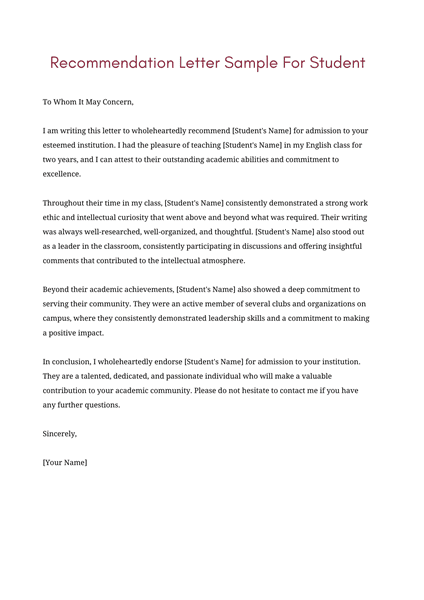
Recommendation letter sample for student
Sample 2: for further education
To Whom It May Concern,
I am writing this letter to wholeheartedly recommend [Student’s Name] for admission to your esteemed institution. I had the pleasure of teaching [Student’s Name] in my English class for two years, and I can attest to their outstanding academic abilities and commitment to excellence.
Throughout his/her time in my class, [Student’s Name] consistently demonstrated a strong work ethic and intellectual curiosity that went above and beyond what was required. Their writing was always well-researched, well-organized, and thoughtful. [Student’s Name] also stood out as a leader in the classroom, consistently participating in discussions and offering insightful comments that contributed to the intellectual atmosphere.
Beyond their academic achievements, [Student’s Name] also showed a deep commitment to serving their community. They were an active member of several clubs and organizations on campus, where they consistently demonstrated leadership skills and a commitment to making a positive impact.
In conclusion, I wholeheartedly endorse [Student’s Name] for admission to your institution. They are a talented, dedicated, and passionate individual who will make a valuable contribution to your academic community. Please do not hesitate to contact me if you have any further questions.
Sincerely,
[Your Name]
